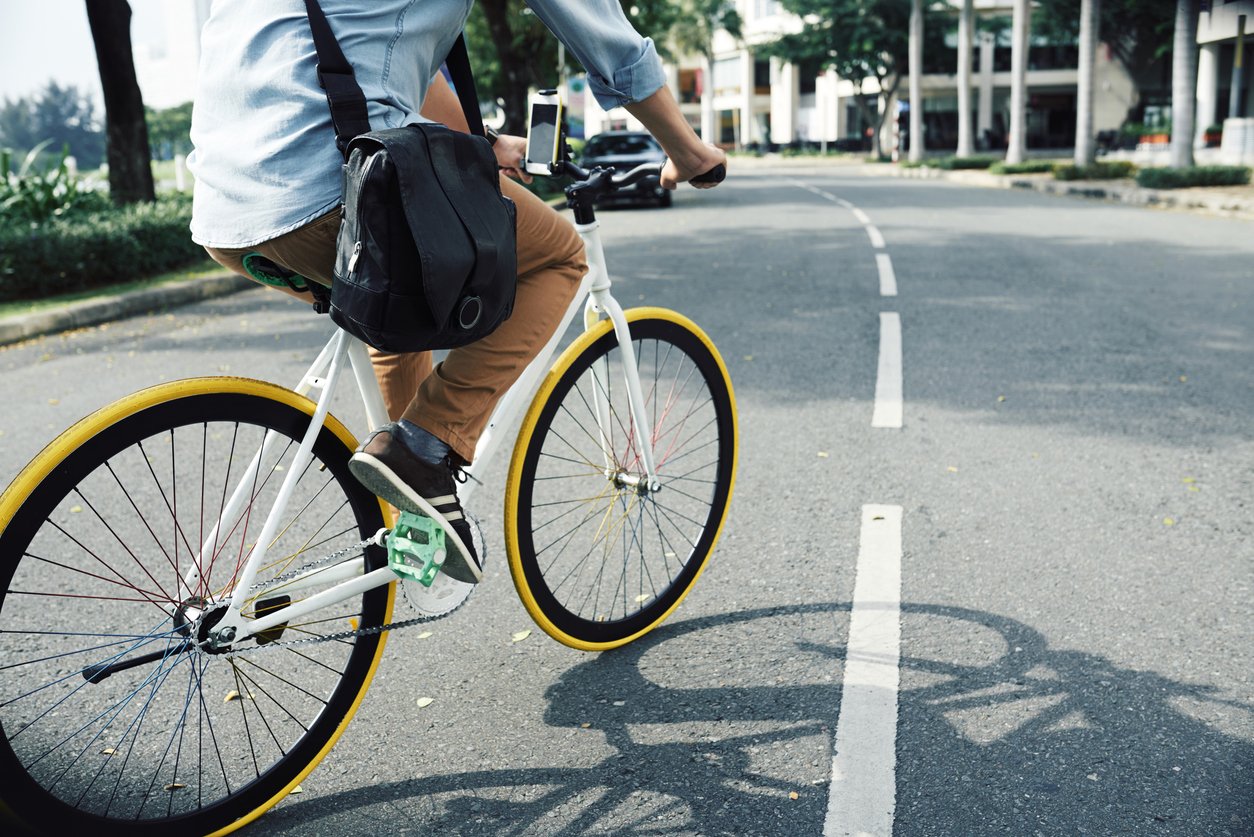Search for topics or resources
Enter your search below and hit enter or click the search icon.
Friday, September 22nd is Car-Free Day across the DMV and thousands of area residents have taken the pledge to go car-free. Hosted by Commuter Connections, this event aims to bring awareness of the benefits of alternative travel options such as walking, biking, taking bus or Metro, or even going "car-lite" by carpooling with fellow commuters.
So what are the benefits of driving less? The first thing that may come to mind is the potential benefits to the environment, but there are also personal health and financial benefits that can come from reducing dependence on cars as well.
New EYA townhomes in DC, MD and VA
Read on for more information about the benefits of driving less and how to reduce car use in your daily life.
Reduce Environmental Impact
By choosing alternative modes of transportation such as biking, walking or taking public transit, you're doing your part to reduce carbon emissions, curb air pollution, conserve resources and reduce congestion on your city's roadways.
Reduce Carbon Emissions: Cars are responsible for a significant portion of global carbon dioxide emissions. Reports have shown that the transportation sector accounts for over 20% of global energy-related CO2 emissions, with road travel in particular making up more than three quarters of that. Reducing dependence on car travel can help minimize your carbon footprint and contribute to mitigating climate change.
Air Quality Improvement: Car emissions are a major source of air pollution, releasing pollutants like nitrogen oxides and particulate matter, and can exacerbate respiratory conditions like asthma and bronchitis. Studies have shown that improved air quality can lead to a decrease in respiratory diseases, cardiovascular issues, and premature deaths.
Resource Conservation: By using alternative modes of transportation or opting for electric vehicles (EVs), you can help conserve fossil fuels and reduce the demand for oil extraction, which has its own environmental toll.
Lower Traffic Congestion: As cities continue to grow, traffic congestion becomes a mounting problem. Going car-free or car-lite is a solution to help reduce the number of vehicles on the road, thereby easing traffic flow, minimizing delays and time idling, and creating a smoother, more efficient and less stressful commuting experience for everyone.

Enhance Your Physical and Mental Health
By choosing to walk, cycle or use public transportation, individuals can incorporate physical activity into their daily routine. This increased exercise can improve cardiovascular health, strengthen muscles, and promote weight loss. Moreover, engaging in outdoor activities can have a positive impact on mental health, reducing stress levels and increasing overall well-being.
Increase Physical Activity: The World Health Organization (WHO) recommends that adults ages 18-64 should do 150 to 300 minutes of moderate-intensity physical activity per week. Walking or cycling as your primary means of transportation can easily help you meet this goal, leading to a healthier lifestyle and a reduced risk of chronic diseases such as obesity and diabetes. Even walking to the bus or Metro will help you get in those added steps!
Improve Mental Well-Being: Numerous reports have shown that regular physical activity, such as walking and cycling, can boost mood, help with concentration, improve sleep, release tension and more. And being active outdoors can have a particularly positive impact on mental well-being.
Reduce Stress: Traffic jams and the constant hunt for parking spaces are known for causing stress and frustration. In fact, one study showed that DC drivers spent on average 65 hours per year looking for parking! Going car-free or car-lite can significantly reduce the stress that often comes with driving and car ownership. Instead of white-knuckling it in rush-hour traffic, a brisk walk or sitting back on the Metro could transform your daily commute into a time for exercise, reading a book or catching up on your favorite podcast.
Enjoy Potential Financial Savings
From car payments to repairs to insurance, car costs can easily add up. Public transportation or rideshare services can often be more cost-effective than owning a car. That extra cash in your pocket can be put towards experiences, savings, or investing in other areas of your life.
Save on Monthly Payments: Reports have shown that the average cost of owning a new car has surpassed over $1,000 per month. Not only is it the monthly car payments to keep in mind, but also the insurance, registration, potential repairs, gas costs and more. By switching to car-free or car-lite living, you could potentially save thousands of dollars annually.
Use Your Savings Wisely: Imagine if you had an extra $1,000 per month. What would you do with it? Contribute to retirement, save for a down payment on a home, take the dream vacation? The potential savings from eliminating a car may well be worth the benefits you could enjoy in other areas of your life.

Even if you aren't ready to go completely car-free, there are many ways you can reduce your dependence on a car and drive less. Every little bit helps towards reducing your environmental impact and potentially improving your health and financial savings. Here are a few tips to get you started thinking about how you can reduce car use in your daily life:
Whether you are ready to go car-free or take steps to go car-lite and reduce your car use, there and numerous benefits for you, the environment and the city where you live. By embracing simple changes in your weekly routine, you could help to reduce traffic congestion, lower your carbon footprint, improve physical activity, increase savings and more.